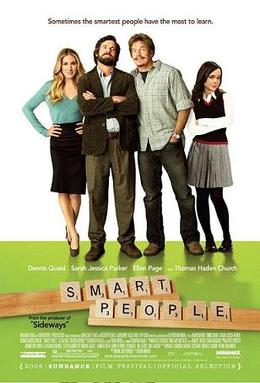
Confession: I am not a Martin Scorsese fan. Raging Bull was fine, but I definitely wouldn't rate it as the
fourth best American movie ever. But eventually the perpetual hype got to me, and I put The Aviator in my DVD player with great anticipation. A three-hour long movie (170 minutes, to be exact) that got rave reviews has to be riveting, right?
Unfortunately, the other option for a 170 minute movie is that it's overblown with its own importance. Granted, it fits well with the subject matter here -- it appears that Howard Hughes was a pretty self-important man -- but Mr. Scorsese seems to forget that a movie is still a movie no matter how long, and it would have been nice to feel like there was a reason for my watching rather than seeing a scattershot of events that happen to be roughly true.
For those of you who may have missed it, The Aviator outlines the life of
Howard Hughes, the great filmmaker and aviator, from the late 1920s to the 1940s. (Howard Hughes produced Hell's Angels, Scarface, The Outlaw, and a slew of films noir in the '50s, and set multiple air-speed records during his lifetime.) I'm not quite sure why the timeframe of the movie was chosen -- after a brief prologue of a scene of Hughes as a child, it jumps straight to the production of Hell's Angels, which wasn't Hughes' first movie. And it stops after he successfully tests the Hercules, a huge aircraft that spent him years to make, but before he took control of RKO, or severed his relationship with his longtime assistant Noah Dietrich, or founded the Howard Hughes Medical Institute. Maybe this would make sense if we assume that everyone knows about Howard Hughes's story and his descent into madness in his later years, but let's not assume that a movie-going public that is mostly teenagers knows about a rich and crazy guy who died in the 70s.
As for the movie itself, the best part about the movie was that it was star-studded as Howard Hughes' apparently was: big names played bit parts for the chance to be in a Scorsese film, and it was fun to watch Gwen Stephani, Jude Law, Ian Holmes, Alan Alda, and a bunch of others in fairly small roles. Leonardo DiCaprio does a good job playing a part with almost no guidance from the script as to a story arc. Now, I know people's lives don't necessarily have climaxes and turning points and drama to their days, but if you're consolidating a life (or part of a life) to a few hours, you've got to have a reason for what you see and what you dont. Now, I don't mean that I need to know why Hughes went mad, for example, but hinting that it was a childhood thing but not exploring that just frustrated me, and to have character after character march in and out of his life isn't helpful to understanding his life. Similarly, Cate Blanchett does a passable job as Katharine Hepburn, but her role seemed more about imitation than acting -- the problem with playing a person that spent a lot of the time on film herself. In the end, I felt like the movie was less a story than an observation/impersonation, which seems a waste of time and talent to me. Even documentaries are supposed to be edited to have a direction to the story it tells, but this was just sprawling and pointless even though it was larger-than-life and impressive to watch. Maybe that was the point: that Howard Hughes' life was jam-packed with action, danger, risky business moves, Hollywood stars, and paranoia, but in the end didn't have much direction or purpose. But if that was the point, I'd rather read a biography that really explores the whole life and wonders why his life was both so amazing and so screwed up. Just watching some random, disparate parts of a man's life for three hours was about double the time I was willing to spend. Note to future Scorseses: Editing something to make it shorter generally makes it better, not worse.
2 stars


